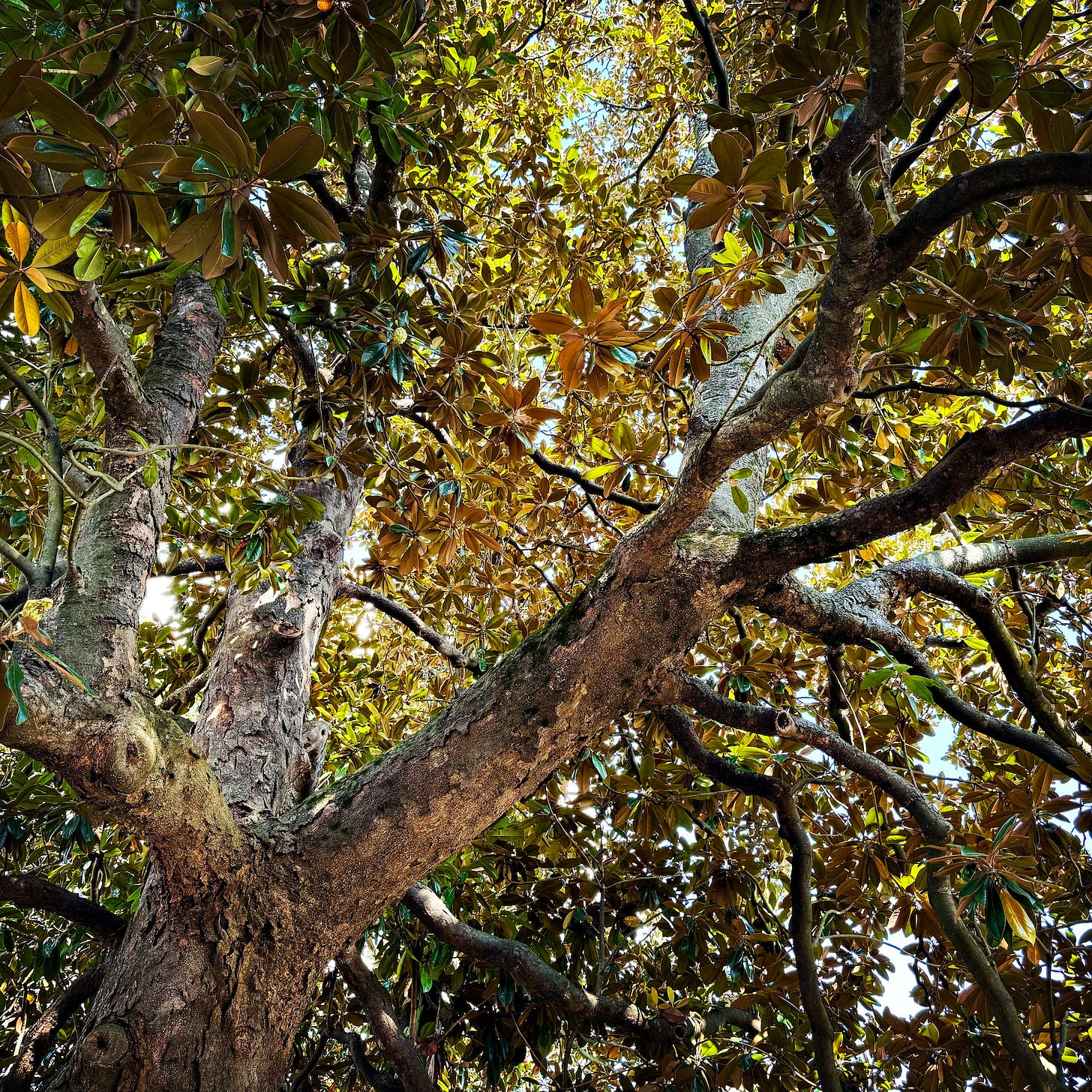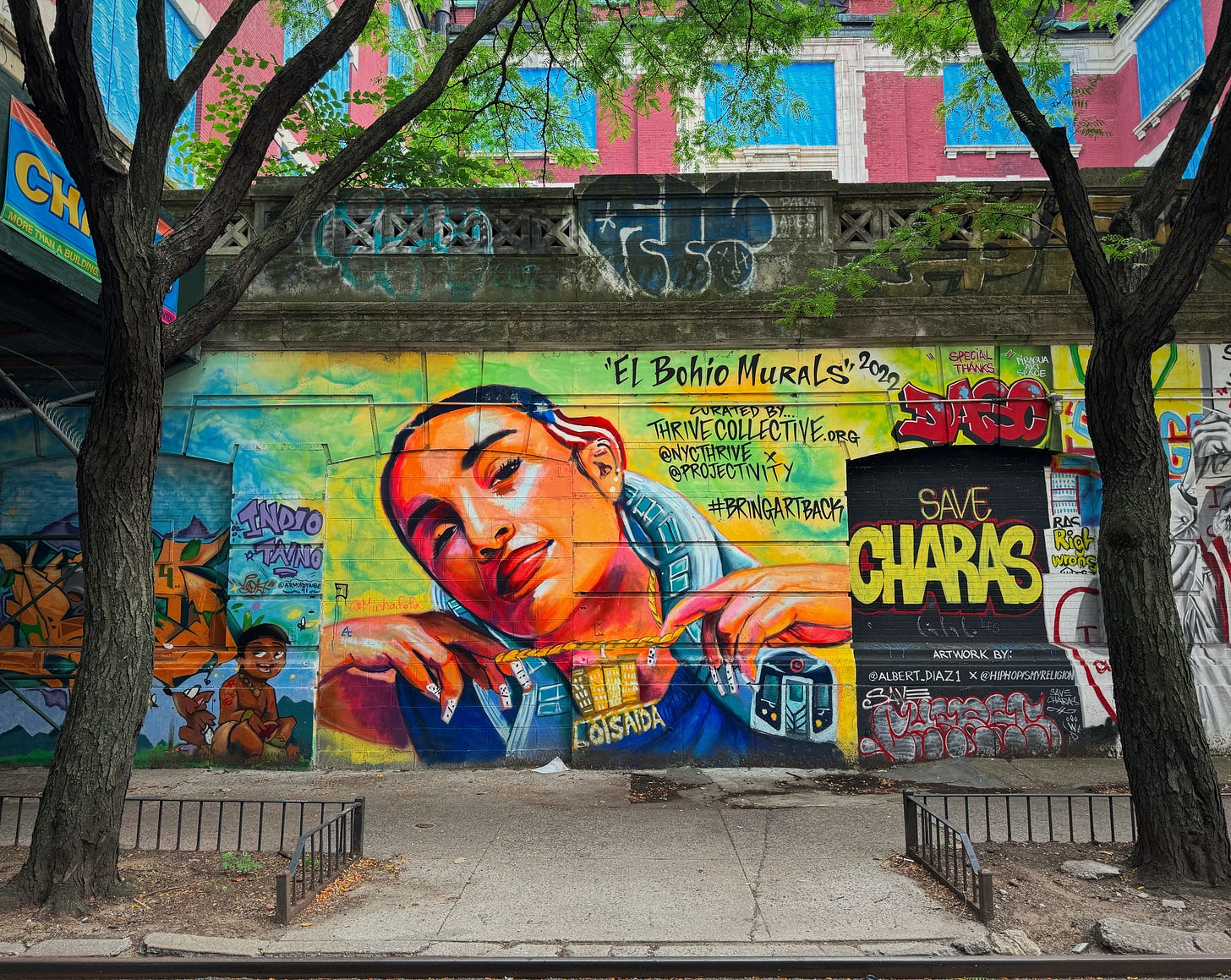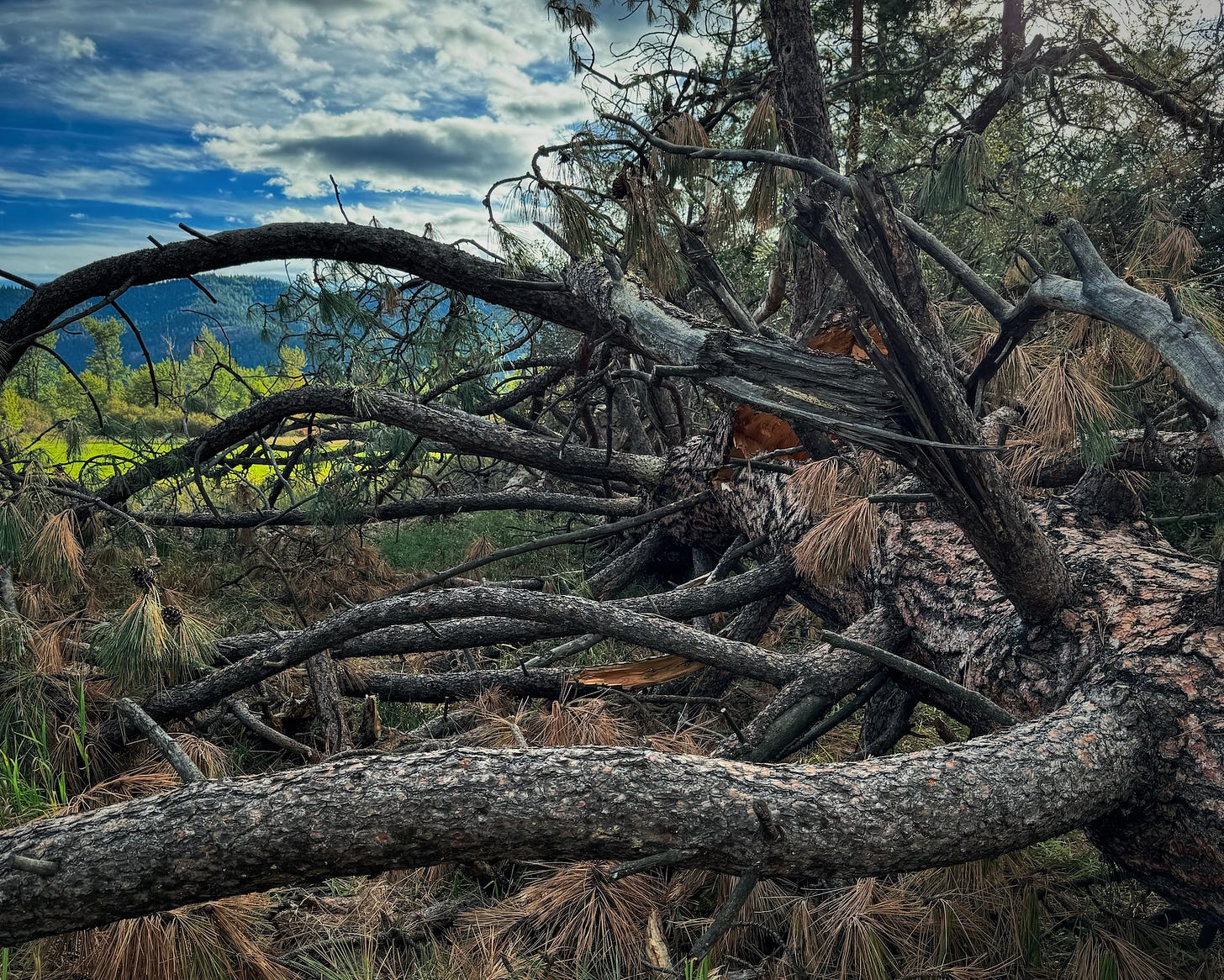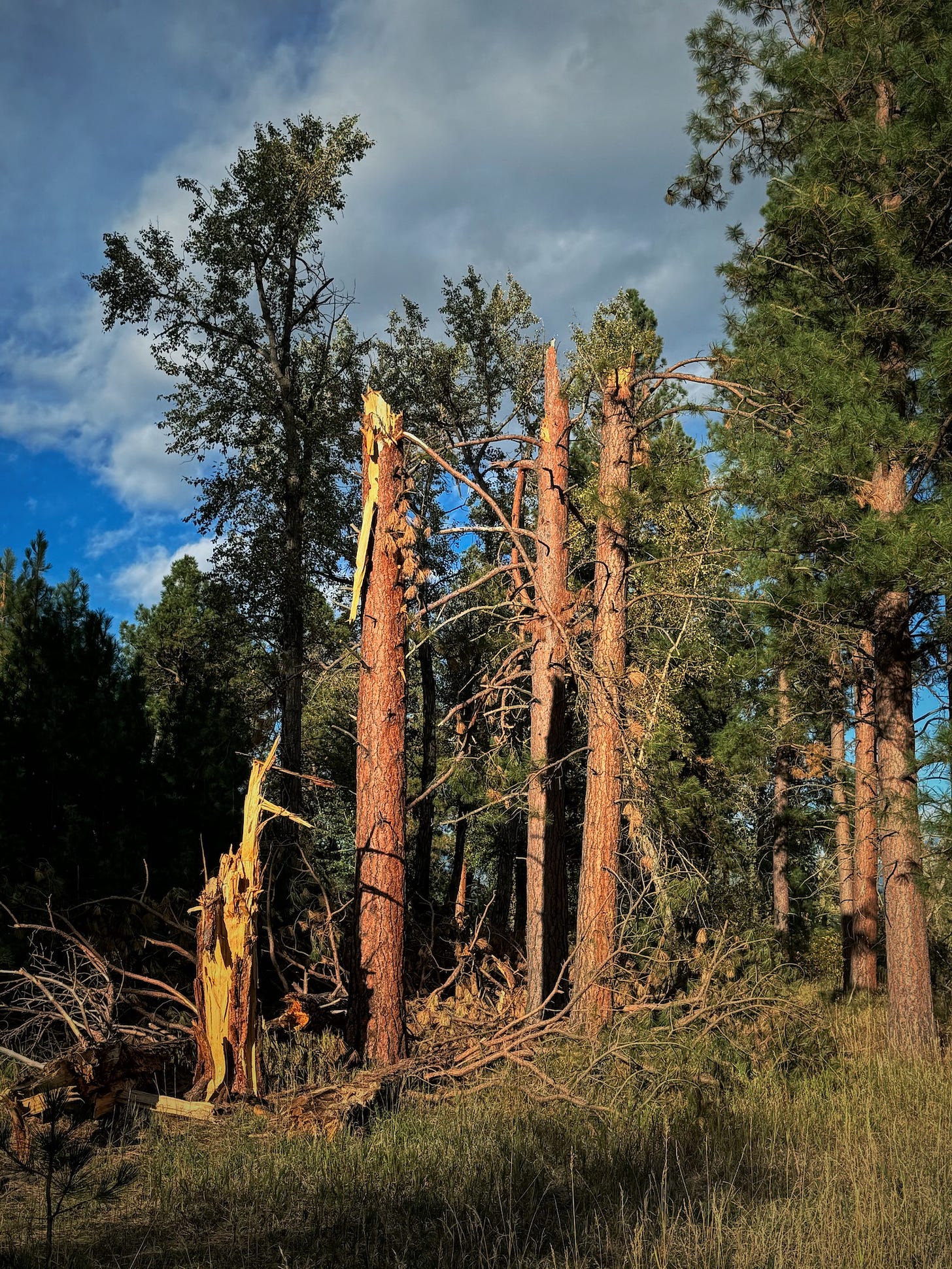Boozhoo, indinawemaaganidog! Aaniin! That is to say hello, all of my relatives! Welcome to another edition of An Irritable Métis. I’m a couple days recovering after my return from Phase Three of my tour for Becoming Little Shell, which encompassed a few dates in the vicinity of the East Coast. It was an excellent whirlwind of lovely stores and the best of booksellers; the events themselves are always the best part of these excursions. Still, the effort is catching up to me, not unexpectedly, leading to reflections I thought you intrepid readers might be interested in.
Additionally, Phase Four starts this week1. I’m doing some things around Montana again; a couple keynote addresses at conferences, a book club meeting2, a zoom thing, a museum appearance, an “In Conversation” with a writer I absolutely adore, a bookstore appearance, all before blasting off for the better part of three weeks starting in mid-October. There’s no slowing down now until the Winter Solstice.3
I’m compelled to comment again on how the supporters of this newsletter have shown up for my tour. For everything I do anymore, really. I’ve met so many of you! These editions and the support of other writers have been far and away the biggest drivers of attendance out on the road and in workshops. I’m held up by all of you and I am grateful beyond measure. All that and to say if you want to be part of the assistance in keeping the Irritable Roadshow on the road, please consider a paid subscription. It is very, very helpful. Or just keep reading, buying books, whatever. It’s all wonderful.
While I’ve been away from home Dagwaagin, fall, has arrived in the Old Mill District. I’m pleased as this is my favorite time of year, though the days have remained too hot to entirely indulge in jackets and flannels and boots and various other opportunities for sartorial choices not exclusively based on the degree to which they are going to show how much of an always-sweaty slob I really am. Summer is hard on the greasier among us. Fall levels the playing field.
These last few days sitting in the sub-55° environment of my porch in the morning with my coffee – mist rising along the river, the breeze rattling free the leaves of the cottonwoods across the street, school children sullenly ambling by on their way to being herded aboard a bus and hauled off to the incinerator of all their summer joys – I do miss the abundance of the dawn chorus. Most of the birds are moved on, with the delightful exception of chickadees and pine siskins and a few others, and I miss them already. I feel like I barely got to experience bird season at its peak this year and now we’re moving toward winter.
I know this darkening season is hard on some folks emotionally and they enter into it with trepidation. I’m generally not among them. Bird migrations aside, I love the change and the instinctive desire to hunker down behind a fragrant wall of split and stacked wood and think fur-covered thoughts but this year is a little different, if only in the precarious juggling of a couple conflicting truths: the love (and relief) that arrives with cooler weather in the one hand, and a powerful and unusual malaise in the other. That latter sensation is the concerning one even though I know where it is coming from. I’ve long had a tendency to lapse into a pretty deep depression with the culmination of any big project and I’ve been too busy for that to happen with the final release of Becoming Little Shell. The tendency, given I’ve marginally taken my foot off the gas for even just a couple busy days, has finally caught up to me.
It’s understandable. The book has been out more than a month and that initial rush of community wide excitement is mostly over. The fanfare is over. The exciting parts are mostly over, beyond the continuing thrill of events and meeting new people. Fresher books have emerged for people to get excited about. My publisher has new books coming out that demand their attention and they’ve moved on accordingly. All of which is to say writing a book has seasons and releasing a book has seasons and we do well to recognize that.
Writers exist in this strange world of deep, personal relationship with a work that has often taken incredibly long to bring to the world and there’s just no way anyone else is going to maintain the thrill of it being OUT anywhere near so long. Inattention and disappointments begin to catch up to all the initial exciting attention and announcements. The reality settles like a vulture on a fence post that putting a book out is as much of a long haul enterprise as writing the thing was in the first place. This eventuality marks a critical moment in the release of the book. The writer, recognizing the inevitable dimming of enthusiasm, either despairs and gives up on their own book or, as in my case, mopes for a few days before getting back to the grind of keeping it alive. At least that is what I intend to do, hopefully so anyway. How can I know? I’ve only just now reached the point where the realization of the immensity of the wilderness and the solitary relationship I have with it has settled on me.
I’m not bitter about any of this. I’d be in a better place if I were doing a better job of doing the things I’m often urged by people to do. Like take time to rest, like take care of myself, like etc. The energy I burn to be a public person is far, far more than what I get back from it, even though most of what I do I enjoy immensely. I’m a private person and require regular occasions of solitude. If I don’t get out and recharge there is a price to pay. This malaise I describe is largely fueled by recent failures to do so.
The other day I made the time to venture out to one of my favorite holy places: Council Grove. It is near my house and for more than a decade has been the place I visit most often to recharge my emotional batteries. In years past it was a place I visited almost daily but I’ve hardly been there at all for the entire summer. I had not visited it since the big windstorm that clobbered us several weeks ago. I’ve been afraid to.
And for good reason. The place got clobbered. The managers of the place have done an excellent job clearing the trails but the devastation is still evident. It was heartbreaking to see so many trees down, or snapped-off at the crowns. I felt sorrow for the disruption to the lives of the myriad of relatives who live there. I all but limped around its perimeter, fearing what I would see.
Sadly, the tree I love the most, the tree I would stop and visit every time I passed, did not survive. This was a massive and heavily-limbed old ponderosa pine who had been standing for easily the better part of three centuries. I don’t think three of me could have leaned against him and encompassed his girth with our outstretched hands. It was almost unimaginable to me to see this being who has been caressing the sky for as long as I have been visiting stretched now, broken and sawed-on, across the ground, the short span of trunk I have buried my face and nose into scores of times pressed down now into the soil.
This wasn’t energizing. On the contrary, the entire experience was more than I could take. I sat down on a piece of the tree and wept. I was there for quite some time and my thoughts were dark.
Then I left.
The tallest tree in New York fell late last fall. My friend Philip found her.
There is a photo of Philip beside the splintered stump, her golden shards sticking up like a coronet. He is wearing a lumberjack flannel of red and black and stands on her fallen body with his dog, a speckled Dalmatian named Birch. I can't help but think of a hunter squatting beside his kill, antlers in his hands, pride in his eyes, but the image isn't accurate here because my friend Philip loves trees more than anyone I know. I should ask him if he cried.
After he and another friend of ours finished their hike, they reported the fall to a local forest ranger.
She was named Tree 103 and stood in a group with her sister pines, known to locals as Elder's Grove. The silky winged seed that would become her—or perhaps already was her-fell to the earth around the year 1675. This was before New York became a state, before the United States became a country, and before the Adirondack Mountains in which she lived became a recognized region. I say, "She lived," but Justin Waskiewicz, a professor of forestry at neighboring Paul Smith College, says, "Dead, yes, but I prefer to think that [she's] just not vertical anymore."
– Lore Ferguson Wilbert, The Understory
The preceding is an excerpt from a little book I brought home from Flyleaf Books in Chapel Hill, NC, on the occasion of my reading there last week. When I returned from my troubling outing to Council Grove I wanted to read about trees and this book was the first to find a way to my hand. I suspect it called me to it because it knew what I needed. The excerpt I’ve shared is the very beginning of the book. I had no idea it would open so and at first I nearly recoiled. I didn’t want to read about wind storms and more dead trees! But that last line, "Dead, yes, but I prefer to think that [she's] just not vertical anymore." It struck me. I was already considering the afterlives trees enter when they fall, the entire world that depends on such for survival, the world that springs from a tree’s demise. A world we are part of. A world we depend on. This is the tree version of crossing over to the other side, much like we do as humans when our lives come to an end, but magically different. I understand the need to celebrate this next most imperative role this tree will play in his continued existence. I will do my best.
I’m grateful for my sorrow. I’m sad but I can still visit my friend. I was considering this, or at least a degree of it, before I picked up the book, but to hear it articulated by someone else, and so wonderfully, was a balm. I’m left considering my relationship to Council Grove. The place has given me so much. Now, in its need for recovering with all this change, what can I do to be energy for it? It is something I am reflecting on.
“That winter, as we snowshoed across the river into the island wood across from our house, we could see the clear path of the windstorm. A whole swath of trees was down in a row or broken off near their crowns at a singular point along the horizon, forty feet in the air. I reminded myself that a healthy forest will submit to its environment and do its own maintenance by adapting, creating mulch, and feeding its offspring with their ancestors' decomposing matter. There is indeed a secret life to these trees, and what looks like destruction to my human eyes is still a part of a healthy and whole life.”
– Lore Ferguson Wilbert, The Understory
I would like to end this newsletter with an encounter that was no less than magnificent. Recently I was leaving another weekend engagement where I’d been invited as poet laureate to read to an audience and participate in a conversation. Both went well, or seemed to, despite some complications that weren’t unexpected. The location of this place is in a spot as beautiful as any in Montana. The little cabin thing I stayed in had a tremendous view and a porch to enjoy it from so perfectly matched to my need to slow down that I longed to remain for an entire week, minimum. I could feel it as a deep ache throughout my entire body, like muscles taxed nearly to failure. I was grateful to be invited there and would happily return, even as I was leaving with an abundance of mixed and conflicting feelings about the place. For that and many additional reasons I was on the brink of tears as I pulled away.
It was early morning and after thirty minutes of driving I was near I-90 where it passes the little town of Columbus. I pulled into the McDonalds for another jolt of coffee and a couple hashbrowns. The queue was longer than I realized and I almost regretted stopping. While I waited, my car chimed the reminder that I was only 80 miles away from running out of gas, which was fortunate because I wasn’t paying attention to that. Once I cleared the golden arches, I coasted across the parking lot and pulled into a spot at the Town Pump.
While I was filling my tank an attendant was swapping out the bag in the garbage can. I continued about my business, lost in my own reverie, when he said, “Hey, are you Chris La Tray?” I turned and looked at him and said, “Yeah.”4 He smiled and nodded. “I thought it was you,” he said, “but then I saw your tattoos and knew it was you. I’m Marcus La Tray.”
I was staggered. After comparing relatives and such it turns out Marcus is my cousin. We share a great great grandfather, Mose La Tray of the 1879 Lewistown contingent. He told me he and his dad are enrolled Little Shell and that they know about me and my book. I had copies in my car so I signed one and gave it to him. He told me his dad would be so excited. When we parted, walking away Marcus turned and said, “Giga-waabamin!” That is “I will see you again” in Anishinaabemowen.
My friends, I can’t tell you how meaningful this interaction was and the providential nature of it all. So many things had to align perfectly for us to meet. I had to stop at McDonalds in the first place and the line had to be just so long. I had to need gas. I had to pull into that particular pump station. And Marcus had to be paying attention. I was already flirting with malaise when I left the gig I was moving on from, wondering about the point of all of it, the hugeness of the world and my tiny place in it. But to meet Marcus, and be reminded that I am not alone among La Trays following this path … well, the effect was profound. And to hear Anishinaabemowen spoken at a time and place where I never would have imagined hearing it was deeply, deeply moving to me.
It’s later than I intended to be up working on this newsletter, days removed since starting it. I’d like to close with something poet laureate worthy to honor my encounter with Marcus and what it means in the larger picture of what my life has become. I know I’ll come up short. So I will close with this: I am fortunate to have the opportunity to be out telling these stories. It is important, and it is just getting started.

Miigwech, my friends, for lasting this long with me this evening, where I write from a hotel at a history conference in Great Falls. None of this happens so well without you, and I am abundantly grateful.
Tomorrow, Thursday the 26th as I write, but who knows when this newsletter will actually go out given I’ve been trying to get to it all week.
The first one for BLS, and it’s with the members of the mighty Little Shell Book Club, and I’m very, very excited to get to do it. Ugh, friends, it was a bust. Four people participated out of sixty. What a tremendous disappointment.
Which reminds me, and I don’t think I’ve mentioned it yet, but I’m doing another winter program in Yellowstone at the Lamar Buffalo Ranch in earlyish December. Check it out HERE.
I want to point out here that I’m learning it isn’t unusual at all for me to get recognized almost anywhere in Montana. But I was deeply surprised to have it happen while pumping gas in Columbus.






Thank you for this beautiful honesty. This piece is the essence of fall, a distillation of its taste, like a liqueur—eau de vie d’automne. Fall in the life of a book after the solstice of publication. Fall in the life of a tree. Fall in the cycle of our moods, like seasons.. It demonstrates that embracing and naming the dark feelings reveals their place in the design of life. It’s very comforting.
Chris, it was great meeting you last week, hearing you talk and answer questions at the event, and as we met with friends after. I'm sorry about your tree friend. But trees have many lives. No longer vertical is a good way to say it, as your friend will pass its 300 years of life to countless other beings.
I visited the oldest local tree where I live. It had died after a storm, but we found raccoons using it for a den, and that made us think that the tree was still alive in a meaningful way:
https://thomaspluck.substack.com/p/the-clement-oak-and-the-first-air
You told us about meeting Marcus and I loved reading that again. Your book is bringing so many people together! Books are like trees, my friend... they have long lives with many stages, and yours is very much alive. It will spread its branches for a very long time, even if it goes out of print. It will never truly die. I hope that helps with the inevitable deflation felt after a big success like this. All those connections are because of you. Pretty amazing, isn't it?
There's an old stand of trees here in a Swamp that I need to visit, after the rain from Helene subsides. If I find them—the trail is unmarked—maybe we can visit them the next time you're driving down the NJ Turnpike! I visited 4 big trees east of the Mississippi last year, it's always worth the time. They live in our hearts long after, like they do in the understory after they fall.